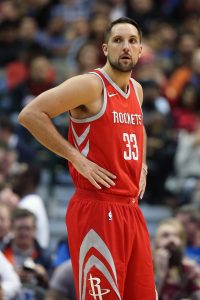The Suns acquired Ryan Anderson, a veteran stretch four they like, in their trade with the Rockets last week, but the prize of the deal looks to be rookie guard De’Anthony Melton. Melton was highly regarded by several draft experts and flashed his NBA potential in Las Vegas in July with a strong Summer League performance.
However, Melton remains unsigned, meaning the Suns will have to lock him up to an NBA contract now that they’ve traded for him. And because Melton was a second-round pick, he’s not subject to any sort of rookie scale — Phoenix will have to use cap room or an exception to sign him.
NBA teams have increasingly used either cap space or the mid-level exception to sign these second-round picks, since doing so allows clubs to offer three- or four-year contracts to those players. Nearly all of this year’s second-rounders have signed for at least three years, with only a small handful of exceptions, such as Jevon Carter of the Grizzlies and Alize Johnson of the Pacers.
[RELATED: 2018 NBA Draft Pick Signings]
The Suns’ options for signing Melton are somewhat limited though, since the team has used up its cap room, going over the cap as part of that trade with Houston. Here are Phoenix’s potential avenues for signing Melton:
Minimum salary exception:
The minimum salary exception can be used by any team at virtually any time. However, the exception limits contract offers to two years and – of course – the minimum salary.
Going this route would put Melton on track to reach restricted free agency in 2020, at which point the Suns could match any offer and the Arenas provision would limit other teams’ ability to do a huge offer sheet. This is how the Grizzlies signed Carter.
It wouldn’t be the end of the world to only offer Melton two years, but there’s a chance he’d hit free agency just as he’s starting to hit his stride.
Room exception:
Like the minimum salary exception, the room exception can’t be used for contract offers exceeding two years. The difference is that the Suns could offer more money with the room exception, going all the way up to $4.449MM in year one.
It’s possible that the Suns will go this route, but there’s little incentive to do so. A guaranteed two-year, minimum-salary contract is already a solid outcome for the No. 46 overall pick, so if Phoenix makes a two-year offer, I’d expect the club to stick to the minimum salary exception.
Creating cap space:
Having used cap room this offseason, the Suns have forfeited their right to the full mid-level exception, meaning the only way they can offer Melton more than two years is to do so with cap space. Right now, Phoenix is over the cap, but there are a couple ways the team could sneak back under…
(Note: We’re assuming Isaiah Canaan‘s non-guaranteed deal is a summer contract that doesn’t currently count against the cap. If that’s not the case, he would need to be waived as part of most of the plans outlined below.)
- Waiving Shaquille Harrison and Richaun Holmes: Both Harrison and Holmes are on non-guaranteed salaries, so the Suns could clear their cap hits from the books by waiving them, creating enough room to sign Melton. The Suns could subsequently go back over the cap by re-signing Harrison and Holmes to new minimum deals, if they want to. This is risky though. Both players would be prime candidates to be claimed off waivers, and the Suns probably won’t want to lose them just to get Melton an extra year or two.
- Buying out Darrell Arthur or Tyson Chandler: Of the two veteran big men, Arthur looks to be the more likely buyout candidate. If he’s willing to give up the equivalent of his minimum salary, the Suns could reduce his cap hit by nearly $2.4MM, opening about $1.45MM in cap space, more than enough for Melton. Arthur would have to be motivated to get out of Phoenix and would probably need to have a new destination lined up in order to agree to a buyout though.
- Making a trade that cuts costs: The Suns are said to be in the market for a point guard after sending Brandon Knight to Houston. If they could find a way to make a deal that also reduces their team salary by $2MM or so, it’d be an ideal outcome, allowing them to upgrade their point guard spot while also creating the cap room necessary to offer Melton a longer contract. This would require a willing trade partner and the right sort of salaries though, making it the trickiest of these options.
It may ultimately not matter much whether Melton signs a two- or three-year deal with the Suns. But if the club makes a roster move in the near future that looks designed to trim team salary, Melton’s first NBA contract is probably the motivating factor.
